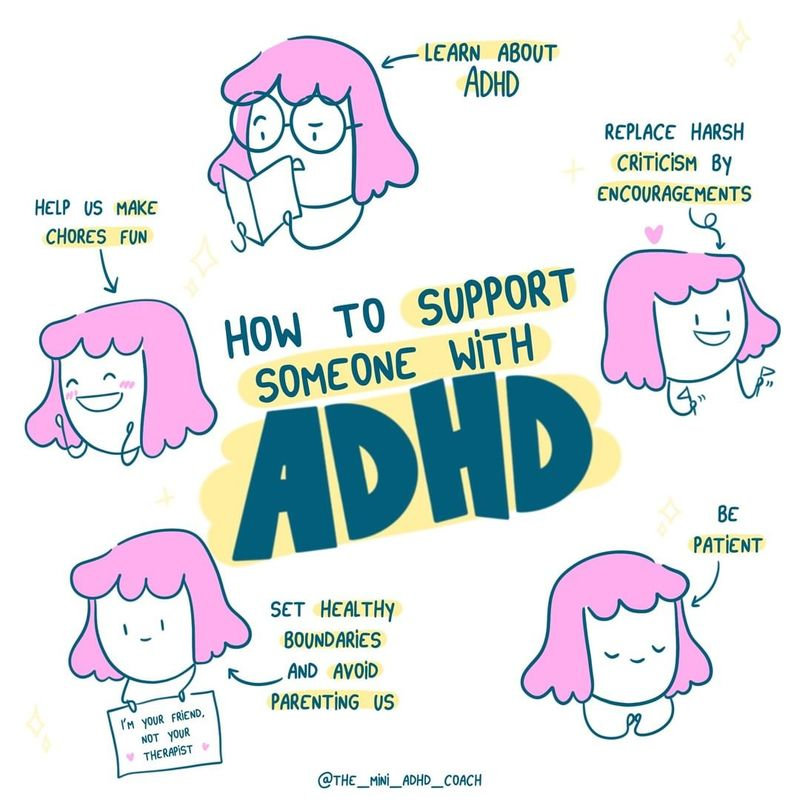Understanding The Impact Of Group Support On ADHD Symptoms

Table of Contents
The Power of Shared Experience in ADHD Support Groups
Connecting with others facing similar challenges is invaluable for managing ADHD. The feeling of isolation and loneliness that often accompanies ADHD can be significantly alleviated through the shared experience offered by support groups. This sense of belonging is crucial for fostering self-acceptance and building resilience.
-
Reduced feelings of isolation and loneliness: Knowing you're not alone in your struggles can be incredibly powerful. Sharing experiences helps normalize feelings that might otherwise feel isolating or shameful.
-
Validation of experiences and normalization of symptoms: Hearing others describe similar challenges validates your own experiences and helps you understand that your difficulties are not unique. This validation reduces self-blame and fosters self-compassion.
-
Opportunity to learn from others' coping mechanisms: Support groups provide a platform to exchange practical strategies for managing daily tasks, relationships, and emotional regulation. Learning from others' successes and failures can accelerate your own progress.
-
Sharing successful strategies and techniques for managing ADHD: Participants often share specific tools and techniques, such as time management apps, organizational systems, or mindfulness practices, that have proven effective for them.
-
Increased self-esteem and confidence through shared successes: Celebrating each other's milestones and achievements fosters a positive and encouraging environment, contributing to increased self-esteem and confidence.
The psychological benefits of belonging to a supportive community are profound. Feeling understood and accepted can significantly impact self-perception and motivation for self-management. Shared struggles, such as difficulties with time management, impulsivity, organization, and emotional regulation, become opportunities for mutual learning and support.
Skill-Building and Educational Aspects of ADHD Group Support
Beyond emotional support, ADHD support groups offer valuable educational opportunities and practical skill-building. Structured learning environments within these groups provide tools and strategies for managing everyday life more effectively.
-
Learning practical strategies for managing daily tasks: Groups often teach specific time management techniques, such as the Pomodoro Technique or time blocking, and introduce organizational tools, like planners and digital calendars.
-
Developing effective communication skills to navigate social situations: Support groups provide a safe space to practice communication skills and learn strategies for managing social interactions, reducing misunderstandings and conflict.
-
Gaining insight into ADHD-related challenges and developing adaptive coping mechanisms: Understanding the nuances of ADHD, including its impact on various aspects of life, allows for the development of more tailored and effective coping mechanisms.
-
Understanding the neurobiology of ADHD to foster self-compassion and acceptance: Learning about the neurological basis of ADHD can foster self-compassion and help individuals accept their challenges without self-blame.
-
Access to resources and information from professionals and experienced members: Many groups include professionals or experienced members who can provide valuable insights, resources, and guidance.
Specific techniques commonly taught include mindfulness practices, cognitive behavioral therapy (CBT) techniques, and strategies for emotional regulation. These structured learning opportunities complement therapeutic interventions and enhance self-management skills.
Building a Strong Support Network Through Group Interaction
The social benefits of ADHD support groups extend beyond immediate skill-building. These groups facilitate the creation of a strong, lasting support system that offers ongoing encouragement and resilience.
-
Fostering friendships and building a sense of community: Shared experiences and mutual support foster genuine connections and friendships, creating a sense of community and belonging.
-
Establishing a reliable network of support for challenging times: Having a network of people who understand your challenges provides invaluable support during difficult times, reducing feelings of isolation and increasing resilience.
-
Access to peer mentoring and guidance: More experienced members often act as mentors, providing guidance and support to newer members.
-
Shared accountability and encouragement to maintain healthy habits: Group members can hold each other accountable for their goals and offer encouragement to maintain healthy habits and strategies.
-
Reduction in feelings of stigma and shame surrounding ADHD: The supportive environment reduces feelings of stigma and shame, fostering self-acceptance and empowerment.
The long-term benefits of these relationships are significant. A strong support network enhances emotional resilience, increases self-esteem, and strengthens one’s sense of belonging. Group leaders or facilitators play a critical role in nurturing these connections and fostering a positive and supportive environment.
Finding and Choosing the Right ADHD Group Support
Finding the right support group requires careful consideration of your individual needs and preferences. Several factors should be considered when searching for an appropriate group.
-
Researching local support groups and online communities: Start by searching online for groups in your area or exploring online communities dedicated to ADHD support.
-
Considering the group's focus: Consider whether the group focuses on adults, children, specific ADHD subtypes (e.g., predominantly inattentive, predominantly hyperactive-impulsive, combined type), or specific challenges (e.g., parenting children with ADHD).
-
Evaluating the group's structure, leadership, and approach: Consider the group’s format (e.g., structured meetings, open discussions), the qualifications and experience of the facilitators, and the overall approach to supporting members.
-
Assessing the group's compatibility with personal needs and preferences: Consider factors like group size, meeting frequency, location, and the overall atmosphere.
-
Understanding the costs and commitment involved in participation: Some groups are free, while others charge fees. Understand the time commitment required to participate effectively.
In-person groups offer the benefit of face-to-face interaction, fostering deeper connections, while online groups provide greater flexibility and accessibility. Websites such as CHADD (Children and Adults with Attention-Deficit/Hyperactivity Disorder) can be excellent resources for locating support groups in your area or online.
Conclusion
This article has demonstrated the multifaceted benefits of group support for ADHD. From fostering a sense of community and shared understanding to providing practical skills and strategies, group support plays a vital role in improving the lives of individuals with ADHD and their families. Finding the right group can be a transformative step towards better self-management and a more fulfilling life. Start your journey towards improved ADHD management by exploring the power of group support for ADHD today. Research local groups or find online communities to connect with others and begin building your support network. Embrace the power of shared experience and collective strength to navigate the challenges of ADHD.

Featured Posts
-
 Missing British Paralympian Las Vegas Police Investigate
Apr 29, 2025
Missing British Paralympian Las Vegas Police Investigate
Apr 29, 2025 -
 Texas Woman Dies In Wrong Way Crash Near Minnesota North Dakota Border
Apr 29, 2025
Texas Woman Dies In Wrong Way Crash Near Minnesota North Dakota Border
Apr 29, 2025 -
 Complete Guide To Nyt Strands Hints And Answers March 3 2025
Apr 29, 2025
Complete Guide To Nyt Strands Hints And Answers March 3 2025
Apr 29, 2025 -
 Minnesota Governor Under Pressure To Enforce Transgender Sports Ban
Apr 29, 2025
Minnesota Governor Under Pressure To Enforce Transgender Sports Ban
Apr 29, 2025 -
 Mhairi Black On Misogyny And The Discourse Surrounding Womens Safety
Apr 29, 2025
Mhairi Black On Misogyny And The Discourse Surrounding Womens Safety
Apr 29, 2025
Latest Posts
-
 Three Injured In Yate House Explosion Gas Leak Suspected
Apr 30, 2025
Three Injured In Yate House Explosion Gas Leak Suspected
Apr 30, 2025 -
 Nevsehir De Kaygan Zemin Yueksekten Duesme Kazasinin Detaylari
Apr 30, 2025
Nevsehir De Kaygan Zemin Yueksekten Duesme Kazasinin Detaylari
Apr 30, 2025 -
 Yueksekten Duesme Kazasi Nevsehir De Kaygan Zemin Felaketi
Apr 30, 2025
Yueksekten Duesme Kazasi Nevsehir De Kaygan Zemin Felaketi
Apr 30, 2025 -
 Nevsehir De Goeruenmez Tehlike Kaygan Zemin Yueksekten Duesmeye Neden Oldu
Apr 30, 2025
Nevsehir De Goeruenmez Tehlike Kaygan Zemin Yueksekten Duesmeye Neden Oldu
Apr 30, 2025 -
 Tyumen Posle Obrusheniya Gorki Postradavshie Otkazalis Ot Gospitalizatsii
Apr 30, 2025
Tyumen Posle Obrusheniya Gorki Postradavshie Otkazalis Ot Gospitalizatsii
Apr 30, 2025
